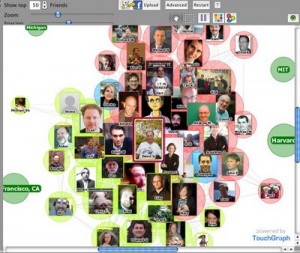Google's recently reported $100-200 million investment in the company Zynga, the very popular online game company, is their latest attempt to finally get their social media strategy off the ground and take on Facebook. Google is vitally interested in social media for at least two fundamental reasons. First, on Google you are largely anonymous, but on Facebook you are a real person and they know much more about you than Google. Second, the "social graph", the name given to those people you connect with is a vital source of information about people, their preferences, even their role in society. In a world dominated by information networks, as ours is, the social graph is the most important map of the terrain.
When I was a doctoral student I performed extensive analysis of a number of companies' social graphs and from that information I could tell status, power, interaction, social isolates, and the like. It is VERY powerful data. Today, with the possible exception of Brasil where Google's Orkut social media site is popular, Google has very little access to the social graph data -- only that which they can derive from GMail.
Given the fact that Zynga is one of the core reasons people come to Facebook -- with over half the users of Facebook using one or more of Farmville or Mafia Wars -- two of the more popular titles on Facebook, this investment by Google may allow them to finally make it into the social media space.
If Google is successful, they will have the ability to offer customers not only search, but you will be able to look at what your friends "like" or not. You can search by social graph, and given how important word of mouth is to companies, this new capability is likely to draw significant volume of traffic, and to give advertisers valuable information about people and their groups.
It is ironic that one of the most "analytic" companies in the world, who have repeatedly missed the mark when it comes to social media, may back-door their way into a viable competitive offering to Facebook. Go figure!
